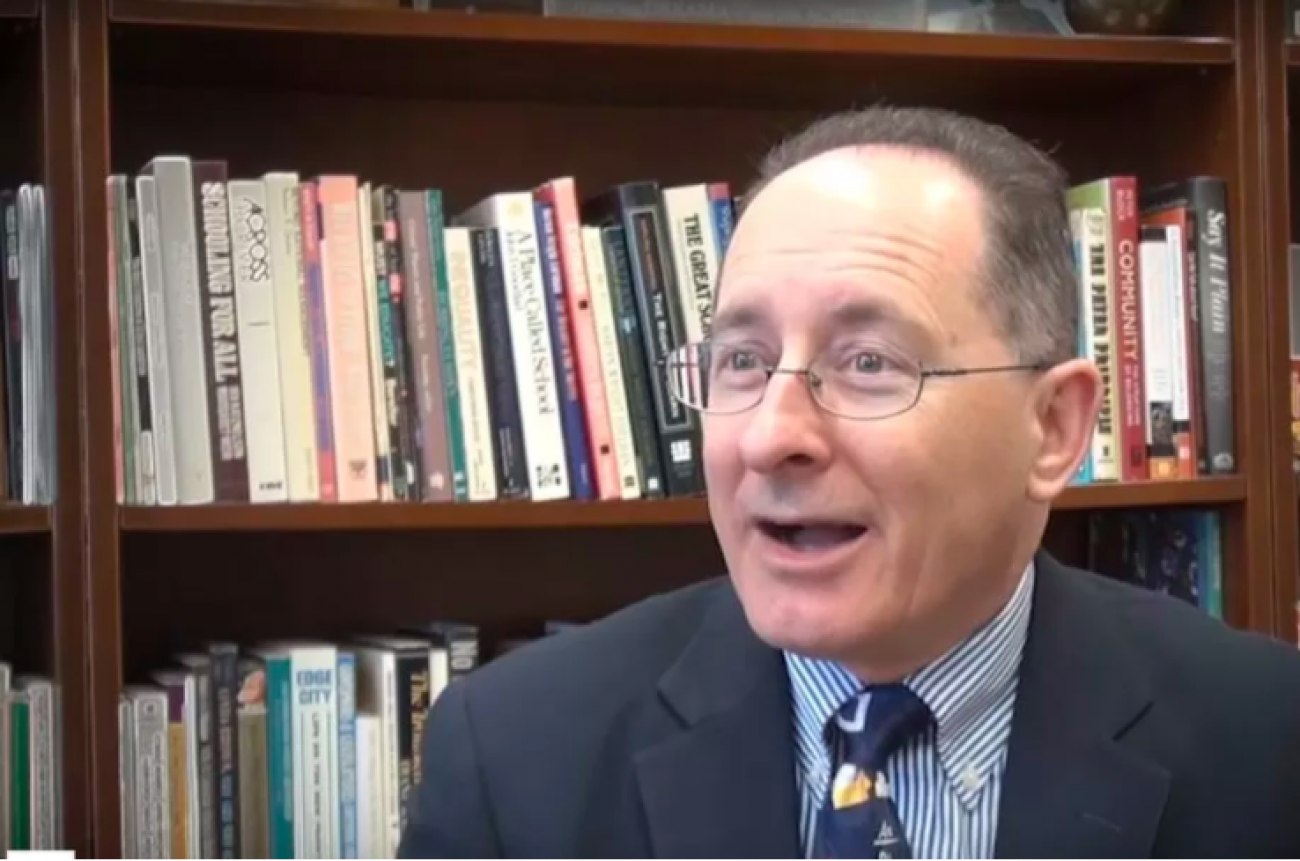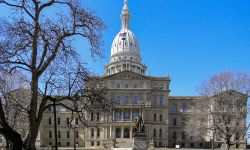Michigan superintendent: Don’t force schools to resume in-person classes


LANSING — Michigan schools shouldn’t be forced to resume in-person classes this fall and should receive funding allocations based on last year’s enrollments, state Superintendent Michael Rice argued Tuesday.
Testifying before a Senate committee, Rice criticized legislation approved last week by the Republican-led House to require all Michigan school districts to offer the option of in-class instruction for students in kindergarten through fifth grade despite concerns over COVID-19.
“Given the pandemic and the substantial fears of parents and staff, this is not practicable in every district in the state,” Rice told lawmakers, predicting some districts could prefer to continue with a “distance learning” approach for the entire school year, depending on how the continuing coronavirus pandemic unfolds.
- Michigan coronavirus unemployment, map, curve, COVID-19 updates
- Dashboard: Michigan coronavirus testing numbers, trends, COVID-19 data
- Michigan school districts push back on GOP plan for elementary classes
- Education leaders beg Lansing: Don't cut funds for poor Michigan students
Because some parents may transfer children depending on districts’ plans, Rice proposes a one-year freeze in state enrollment counts to safeguard against districts luring students — and state funding — from their neighbors.
“If we start doing fresh counts in 2021, we are going to exacerbate the instability in the environment that already exists,” Rice told lawmakers. “We will create even more instability by unleashing this competition around in-person versus at a distance, and I do not think it will benefit our children.”
The debate comes as districts plan for what may be the most unpredictable school year in Michigan history. Because many districts now begin their academic year prior to Labor Day, state officials have only weeks to decide how and if to regulate reopenings.
Not only are cases trending upward — to a seven-day average of 639 on Tuesday from 290 one month ago, June 28 — but without more federal aid, the state’s School Aid Fund faces a $1.1 billion shortfall for the upcoming fiscal year, which starts in October.
The House GOP plan, now awaiting action in the Senate, would limit the number of “e-learning” days that Michigan districts can count toward the 180 days of instruction required under Michigan law. It would also allow districts to contract with non-certified teachers for online classes and require the Michigan Department of Education to create a new Pupil Accounting and Pupil Auditing Manual Oversight Committee to oversee a new student count model.
In-person instruction is “ideal” from an education standpoint, especially as schools try to make up for time lost last year, said Rice, who operates independent of Democratic Gov. Gretchen Whitmer but has generally aligned with her on education policy.
He compared the GOP proposal to shooting a mosquito with a cannon: “You may get the mosquito, but you’re likely going to do a lot of collateral damage along the way.”
Schools need flexibility — and at least some modicum of certainty — as they design fall plans, Rice said. To that end, he urged lawmakers to waive requirements that districts provide at least 1,098 instructional hours and take attendance each day, arguing it would be nearly impossible for schools to track or enforce those requirements for students learning at home and online.
State Sen. Lana Theis, a Brighton Republican who chairs the Senate Education Committee, defended the House GOP package but said she is open to new ideas. Time is limited, however. Senate Majority Leader Mike Shirkey, R-Clarklake, hopes to finalize legislation by Aug. 6.
“I have a lot of parents who are insisting that they want in-person education, and I have a lot of parents who are insisting that they don’t,” Theis said. “Those two things are mutually exclusive unless we find a way to do distance teaching well.”
Whitmer, who closed schools in March as the coronavirus quickly spread across Michigan, last month released a 63-page “return to school roadmap” that proposes rules and recommendations for the fall.
The plan from Whitmer anticipates districts will resume in-person classes or some sort of “hybrid” approach that includes online instruction, but it does not prohibit schools from keeping their buildings closed if local leaders choose to do so.
“We can’t dictate for all 800 districts precisely what a day looks like,” Whitmer said Tuesday.
“Some of the work that’s coming out of the Republcan-led Legislature has merit. Other pieces of it are modeled after the [U.S. Education Secretary Betsy] Devos plan to force schools to put kids back in the classroom.”
Despite the House GOP proposal, a handful of school districts have already announced plans to keep buildings closed this fall and start the school year with online-only instruction.
Grand Rapids Public Schools Superintendent Leadriane Roby on Monday recommended the 14,000-student district utilize "distance learning" through at least Oct. 21, citing the "health, safety, and well being of our students and staff."
Rice told lawmakers he hopes that most schools will “maximize” opportunities for in-person instruction, when possible, but he said the public health crisis takes precedence over public education.
“As I speak to public health people, I don’t hear that the conditions are likely to become better,” Rice warned. “As we get deeper into the school year, as we get into a flu season, as we move into a likely second wave of the pandemic, what I hear is the best opportunity for in-person instruction is at the beginning of a school year, not deeper.”
See what new members are saying about why they donated to Bridge Michigan:
- “In order for this information to be accurate and unbiased it must be underwritten by its readers, not by special interests.” - Larry S.
- “Not many other media sources report on the topics Bridge does.” - Susan B.
- “Your journalism is outstanding and rare these days.” - Mark S.
If you want to ensure the future of nonpartisan, nonprofit Michigan journalism, please become a member today. You, too, will be asked why you donated and maybe we'll feature your quote next time!


